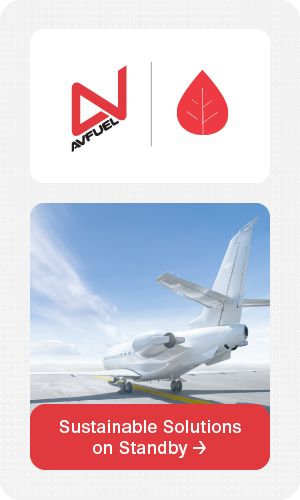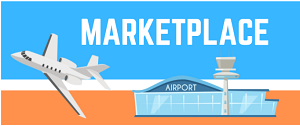In two-years’ time, an airline passenger could select a new mode of city-to-airport transportation if Joby Aviation’s eVTOL (electric vertical take-off and landing) aircraft achieves FAA certification and entry into service, as expected, in 2025. The innovative battery-powered aircraft will bring sustainable technology to a market long dominated by gasoline-powered ground vehicles and turbine-driven helicopters burning Jet A.
“We believe the Joby aircraft will provide the best balance of range, speed, payload, economics, and low noise footprint while being the lightest, quietest, and fastest four-passenger eVTOL,” said Oliver Walker-Jones, Head of Marketing, Communications & Brand for the Santa Cruz, California-based company. “This, combined with an electric, aerial ride-sharing service model linking ground mobility with rapid aerial trips, makes it uniquely and best suited to providing new urban air mobility (UAM) options for residents of congested regions.”
JoeBen Bevirt, a successful serial entrepreneur, founded Joby Aviation, Inc. in 2009 with a small team of engineers. That cadre of engineers included Alex Stoll, who played a principal role in the design of the Joby aircraft. Stoll introduced Joby to Paul Sciarra, founder of Pinterest, who understood the transformative potential of the electrification of transportation as Joby’s first outside investor. He currently serves as Joby’s Executive Chairman.
Today, the company counts more than 1,500 employees spread across its Santa Cruz headquarters and additional offices in San Carlos and Marina, California, as well as Washington, D.C. and Munich, Germany. Along the way, it has attracted world class investors, raising some $820 million in funding prior to going public on the New York Stock Exchange on August 11, 2021, under the ticker symbol JOBY. The investors include Capricorn Investment Group, JetBlue, Intel, Emerson Collective, Global Oryx Limited, Toyota, KTB Ventures, and Millennium Technology. More recently, SK Telecom, a South Korean mobile communications company, invested some $100 million.
Joby currently has 636.7 million shares outstanding. More than $2 billion, total, has been raised to date. According to Joby’;s 2023, second quarter earnings report—released in August—the company had $1.2 billion in cash on hand.
Toyota alone contributed $400 million in funding, making it Joby’s largest single stakeholder at 11%.
“Joby’s relationship with Toyota was born out of a shared vision of creating mobility for all and finding better ways to move people,” Walker-Jones said. “We also share a vision to save billions of minutes in commuting times and together have been working hard to realize our mutual goal to mass-produce an eVTOL aircraft and develop a service that is broadly accessible.”
Toyota, in fact, has been working alongside Joby employees, helping to design manufacturing tools and processes, build out Joby’s pilot production line in Marina, and apply the principles of production they’ve learned over decades as the world’s largest auto manufacturer. “By learning from the Toyota Production System in designing Joby’s processes, we are optimizing our quality, reliability, and cost- effectiveness,” Walker-Jones said.
Among the other notable investors is Delta Air Lines, which has made an up-front equity investment $60 million. The two companies will integrate a Joby-operated service into Delta’s customer-facing channels, providing customers who travel with Delta a premium, seamless booking, simplified time saving experience for short-range journeys to and from city airports when booking Delta travel.
Under their agreement, Joby and Delta have established a 5-year, mutually exclusive partnership across the US and UK, commencing with Joby’s launch of commercial service in 2025, with options to extend the partnership beyond that initial period. Delta, according to a Joby press release, has the opportunity to increase its initial investment up to $200 million as substantive project milestones are realized.
Under current planning, the initial launch of home to- airport services integrated with Delta will take place in New York and/or Los Angeles, building on years of Delta investments in those cities. “As we get closer to the starting date, we will be sharing more information about the operational details and the end-to-end customer experience,” Walker-Jones noted.
Joby will operate its aircraft for Delta, as well as its own city-to-airport services outside of the Delta partnership. However, it will not integrate those services with any other airline in the US or United Kingdom.
“We will operate them ourselves as part of a vertically integrated service under a part 135 Air Carrier Certificate,” said Walker-Jones, adding that, in preparation, Joby was granted its part 135 certificate in 2022. The Joby aircraft will be added to the certificate once they are type certified. Walker-Jones stressed that for all commercial applications, Joby Aviation will operate—but not sell—the Joby aircraft.
The Joby aircraft will be certified under the part 21.17b powered-lift category. To date, the definition phase of the certification process has largely been agreed to and completed, with more than two-thirds of Joby’s certification plans accepted by the FAA. The company is now focused on performing the for credit testing that demonstrates the safety of every component and system across the aircraft. However, FAA work is in progress to define the rules for operating aircraft under the powered-lift category. The FAA published the draft Special Federal Aviation Regulations (SFAR) this summer —on time—and appears to be on track for delivering the rulemaking in the time frame necessary to support the launch of commercial operations in 2025.
As of August 1, 2023, Joby’s pre-production prototype aircraft have flown more than 30,000 miles over thousands of test flights since 2019, including the first flight of a subscale demonstrator in 2015; a full-scale demonstrator first flight in 2017; and, in 2019, commencement of the flight test program for the pre-production prototype. This year, Joby received a special airworthiness certificate for its first production-prototype aircraft, built on its Marina pilot production line, where flight testing has also taken place.
The next step toward type certification will be building an FAA-conforming aircraft for testing. The company declined to give an exact date for the conforming aircraft’s first flight.
In a further development, the Joby aircraft has generated interest from the US Air Force Agility Prime program, for which test flights are already in progress. Joby’s partnership with the Department of Defense began more than five years ago, providing the company with access to testing facilities, early operational experience for government customers, as well as a partial offset to its research and development costs.
Since the Agility Prime program was established in 2020, the Army, Navy, Air Force and Marine Corps have all expressed active interest in the capabilities of eVTOL aircraft. Joby announced in August 2022 that the Marine Corps would participate in government- directed flight tests and use case exploration, including resupply, personnel transport, and emergency medical response applications.
In April 2023 Joby announced the third extension of its Agility Prime contract with the United States Air Force. The $55 million contract extension, according to Walker-Jones, brings the total potential value of the current contract with the Air Force up to $131 million. As part of the agreement, Joby will deliver to—and operate —up to nine aircraft at Edwards Air Force Base by early 2024. “This will provide the Air Force and other federal agencies firsthand experience with the performance of Joby’s aircraft and its potential applications,” Walker Jones stated.
During its earnings call on August 2 of this year, Joby revealed that one of the nine aircraft slated for delivery to the Air Force performed the first flight of an initial production prototype.
In 2020, Joby became the first eVTOL developer to receive military airworthiness approval for its preproduction prototype aircraft. The initial operations are focused on test flights and expanding the flight envelope. “Agility Prime and our partnership with the Department of Defense is a tremendous opportunity to not only test but learn as we expand to on-base logistics operations in the near future,” said Walker-Jones.
The Joby aircraft is being certified as a four-passenger, single-pilot aircraft with a payload of 1,000 pounds and a maximum take-off weight of 5,300 pounds. Speed is up to 200 miles per hour, and range is 100 miles. In wing-borne cruise, the aircraft’s noise level is c45 dBA, which Joby contends is quiet enough to blend into the ambient noise of most cities. Power comes from six direct-drive, dual-wound electric motors, each generating 236 kilowatts of peak power. The six motors—each driving five-blade composite propellers, derive their power from four electrically isolated battery packs—two per wing. Each battery’s energy density is 288 Wh/kg at cell level, and 235 Wh/kg at pack level.
Joby manufactures the motors and propellers inhouse. Garmin supplies its G3000 integrated flight deck. The battery supplier has not been announced.
In 2021, Joby acquired Avionyx, an established aerospace software engineering firm, to support its aircraft type certification program with the FAA. That same year it acquired Inras GmbH, a leader in radar system design based in Linz, Austria, as part of its strategy to maintain leadership in key advanced technologies, according to Walker-Jones.
Currently, multiple Joby aircraft are being built at the Marina pilot production facility, co-located with Joby’s software testing, integrated systems testing, and flight testing facilities. But Joby is already planning for a higher production center.
“The Marina facility is capable of delivering tens of aircraft a year. For scaled production, we’ll be looking at the new Phase 1 production facility, which will be designed to produce hundreds of aircraft per year,” Walker-Jones explained. The location had not been announced when this story was filed.
Pilots will be trained in-house, through the company’s Joby Aviation Academy, which will provide instruction through the commercial pilot certificate. After the necessary flight time has been obtained, pilots will transition to the Joby aircraft-specific training and earn a type rating on that aircraft. In 2022, Joby announced that it will work with CAE to develop and qualify flight simulation devices to train future pilots.
Looking ahead to other potential applications for the Joby aircraft, Walker Jones reiterated that while there are many use cases for eVTOL aircraft, the real promise—and area of focus—is toward on-demand passenger service.
“We believe our aircraft is best positioned to perform urban air taxi missions based on its high performance, rapid charging capability, payload, and extremely quiet noise profile, which will be key to accessing useful infrastructure,” he said. “Between our DoD partnership and early commercial experience, we expect to be able to learn and optimize our service to drive continual improvement.”







